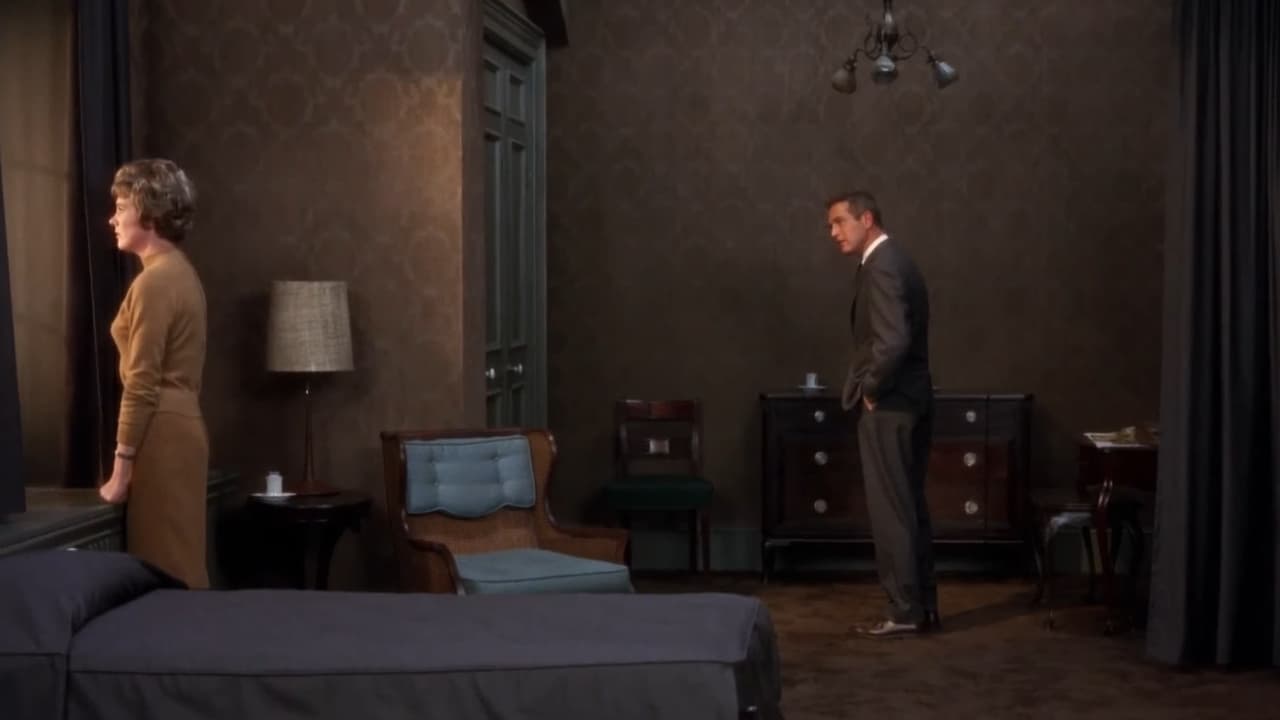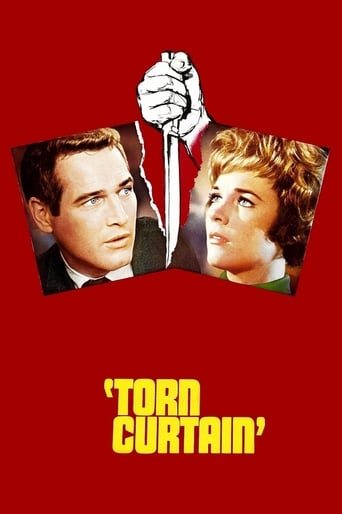

Masterful Movie
... View MoreThe plot isn't so bad, but the pace of storytelling is too slow which makes people bored. Certain moments are so obvious and unnecessary for the main plot. I would've fast-forwarded those moments if it was an online streaming. The ending looks like implying a sequel, not sure if this movie will get one
... View MoreLet me be very fair here, this is not the best movie in my opinion. But, this movie is fun, it has purpose and is very enjoyable to watch.
... View MoreActress is magnificent and exudes a hypnotic screen presence in this affecting drama.
... View MoreThis film was not well received when it came out, and has often been criticised for being inferior. But some of those people who claimed that are the ones who praised Hitchcock's genuinely inferior films such as REAR WINDOW (1954, see my review) and his second version of THE MAN WHO KNEW TOO MUCH (1956, see my review), both of which were terrible. In the latter film Hitchcock unfortunately cast Doris Day as the female lead, and she ended up deafening us all with repeatedly singing 'Que Sera Sera' in the middle of what was meant to be a suspense film. Here, Hitchcock cast Julie Andrews, but she pointedly does not start singing from mountain tops about the sound of music, but instead concentrates on the tense espionage tale in which she is involved in the story. So Hitchcock must have learned his lesson about singing actresses in suspense films, which is to make them shut up. Having thus brought that situation under control, it must be said that both Paul Newman and Julie Andrews do very well in this film, and deliver excellent performances. But for sheer acting genius, the accolades must go to the amazing Russian actress Lila Kedrova, who lends such magic, charm and pathos to her supporting role of Countess Kuchinska that the film is worth seeing solely for that. Another Russian actress, who was also a ballerina, is also superb in the film, namely Tamara Toumanova, who plays the prima ballerina on tour who almost brings death and disaster to the hero and heroine in the story by recognising them at the worst possible moment. Her acting career was sparse, and she only appeared in seven films, in one of which (TONIGHT WE SING, 1953) she played Anna Pavlova. It is the period of the Cold War, and in this film Newman plays an American physics professor who defects to East Germany from a physics conference in Copenhagen. He is a fake defector whose true purpose is to meet a German professor named Lindt (excellently played by the Austrian actor Ludwig Donath) and pick his brains, to help him solve a crucial problem. He then wishes to flee back to the West, aided by the American security services and in possession of the information he needs. But everything gets balled up because Julie Andrews, who is in love with Newman, unexpectedly follows him to Copenhagen and then to East Germany as well, and as people say these days on Facebook: 'It's complicated.' There are some marvellous grisly Hitchcock touches in this film, the most spectacular and gruesome being the scene where Newman has to kill a Stasi agent who is after him in the most outrageous manner by dragging his head into a stove. It is one of Hitchcock's most extreme examples of black humour. It's not that we see a lot of blood and gore, but that we are shown in what is intended to be a semi-comical fashion just how difficult it can be to kill someone who keeps refusing to behave himself properly and just die like he is supposed to. This is one of Hitchcock's successful efforts, and one should not listen to the scoffers who try to pretend it isn't.
... View MoreMichael Armstrong (Paul Newman) is a physicist and Sarah Sherman (Julie Andrews) is his assistant/fiancée. The government had rejected his work on an anti-missile defense. They're in Norway for a conference. He tells her that he's going to Stockholm but she finds out that he's actually going to East Berlin. She follows him there. To her shock, he declares that he is defecting to the east once they arrived.Alfred Hitchcock had already achieved greatness when this movie opened. The problem with this movie is that it fails to reach the same heights. This is a rather bland unoriginal espionage movie. It feels like a script from the maybe pile. The dialogue has no sting. There is no shock value. I never bought Armstrong's defection. The long kill of the East German Stasi agent is pretty good but it still lacks realism. It's a run-of-the-mill thriller from somebody who should have done better.
... View MoreWell, a man and woman are on a train, and the man starts acting strange, almost schizophrenic. It could have gone a number of ways... Where it went was a bit disappointing.There was probably a brilliant film here on cold war paranoia, but since the "war" was ongoing at time of writing, the film is positioned a little too heavily behind one side, and feels false as a result. Suspense levels are pretty low, actual scenes of violence and action are very few, which is probably why this one doesn't have a great reputation. Performances are good, however. Its no Vertigo. 5/10
... View MoreIn the 1960's the tensions of the Cold War ensured that the spy genre was at the height of its popularity both in films and on TV. After the financial failure of Marnie (1964), Alfred Hitchcock chose to play it safer and moved away from the complex psychological aspects of that film and into the more populist, less ambiguous spy thriller territory with his next two films Torn Curtain and Topaz (1969). Unfortunately, the decision did not pay off, as both of those were equally as unsuccessful at the box office as the darker, less straightforward Marnie. For me, Marnie is easily the best of Hitchcock's three 60's box office bombs but of the two spy thrillers, Torn Curtain is superior to Topaz. It's less flabby and more concise, yet both films share a similar characteristic where they begin very well but lose their way somewhat in their final third. With Torn Curtain, the initial set-up is somewhat intriguing and paced very well; it also includes a classic Hitchcock scene where a man and a woman kill a communist security agent in a farmhouse in a particularly protracted an messy fashion, going against cinematic norms and illustrating the sheer difficulty of killing someone. But psychological edginess is eventually disregarded and the plot essentially mutates into a chase movie which is a bit of a let-down considering the potential that has been put in place in the set-up.Its story has an American nuclear physicist defect to East Germany but finds his situation complicated when his fiancé follows him. This one is also typified by featuring two actual mega-stars of its day in Paul Newman and Julie Andrews. It has to be said though that neither of them seem to be at their best here and their performances almost feel a bit forced. Seemingly Hitchcock did not work well with method actor Newman and this clash of styles could be at least partially responsible for the uneasy feeling on-screen. Torn Curtain is hardly a disaster though as it does contain some great moments and benefits from a very polished look. And in fairness, even though it is somewhat routine, it's no less so that a few of Hitchcock's earlier more lauded thrillers. I do feel though that this director is at his best when he is working with material with more psychological edginess, as opposed to the more straightforward suspense embodied in Torn Curtain. It's a solid but unspectacular affair.
... View More